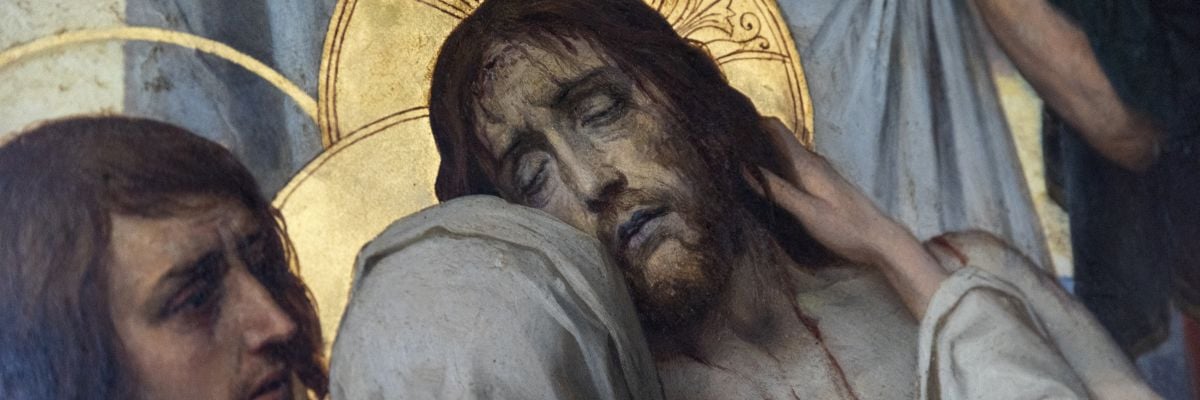
Question:
Answer:
Jesus is necessarily perfect in his divinity. However, in coming to save mankind, he took on an imperfect human nature at the Incarnation, which he perfected through his one sacrifice of Calvary, which encompasses his passion, death, resurrection and ascension (see CCC 1085). To be clear, Jesus didn’t taken on a sinful human nature at his Incarnation, but he did take on a human nature capable of being perfected, which he achieved through his paschal sacrifice. This is what Scripture means when it says that Jesus became perfect through suffering in becoming the source of eternal salvation (Heb. 5:7-10).
After the Resurrection, Jesus tells his apostles that he will always be with them (Matt. 28:18-20). He does this most wondrously through the sacraments in general and the celebration of the Eucharist in particular, providing his eternal life–giving Body and Blood (John 6:51-58), which we celebrate in remembrance of him at every Mass (Luke 22:19-20).
He further signals this to the two disciples on the road to Emmaus on the day of his resurrection in “the breaking of the bread,” a term in the early Church for the celebration of the Eucharist (Luke 24:13-35, Acts 2:42). Although Jesus vanishes from the two disciples’ sight, he remains with them in the eucharistic bread, calling them to a greater faith and trust.
In short, Jesus more powerfully lives on his Church after his resurrection than before. Through partaking of the Eucharist, we the faithful, though many, are one in him (1 Cor. 10:16-17, 12:12-26).



